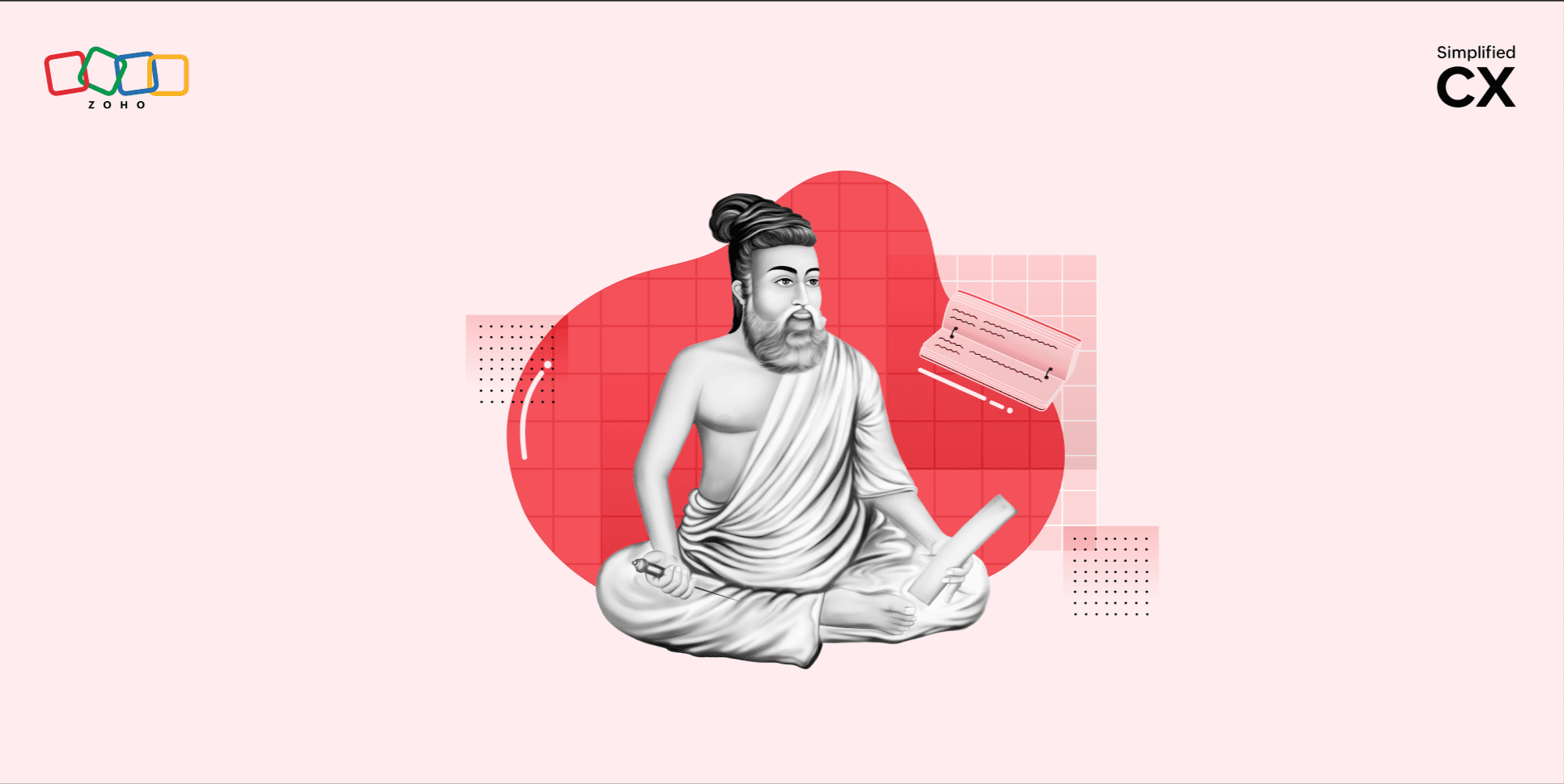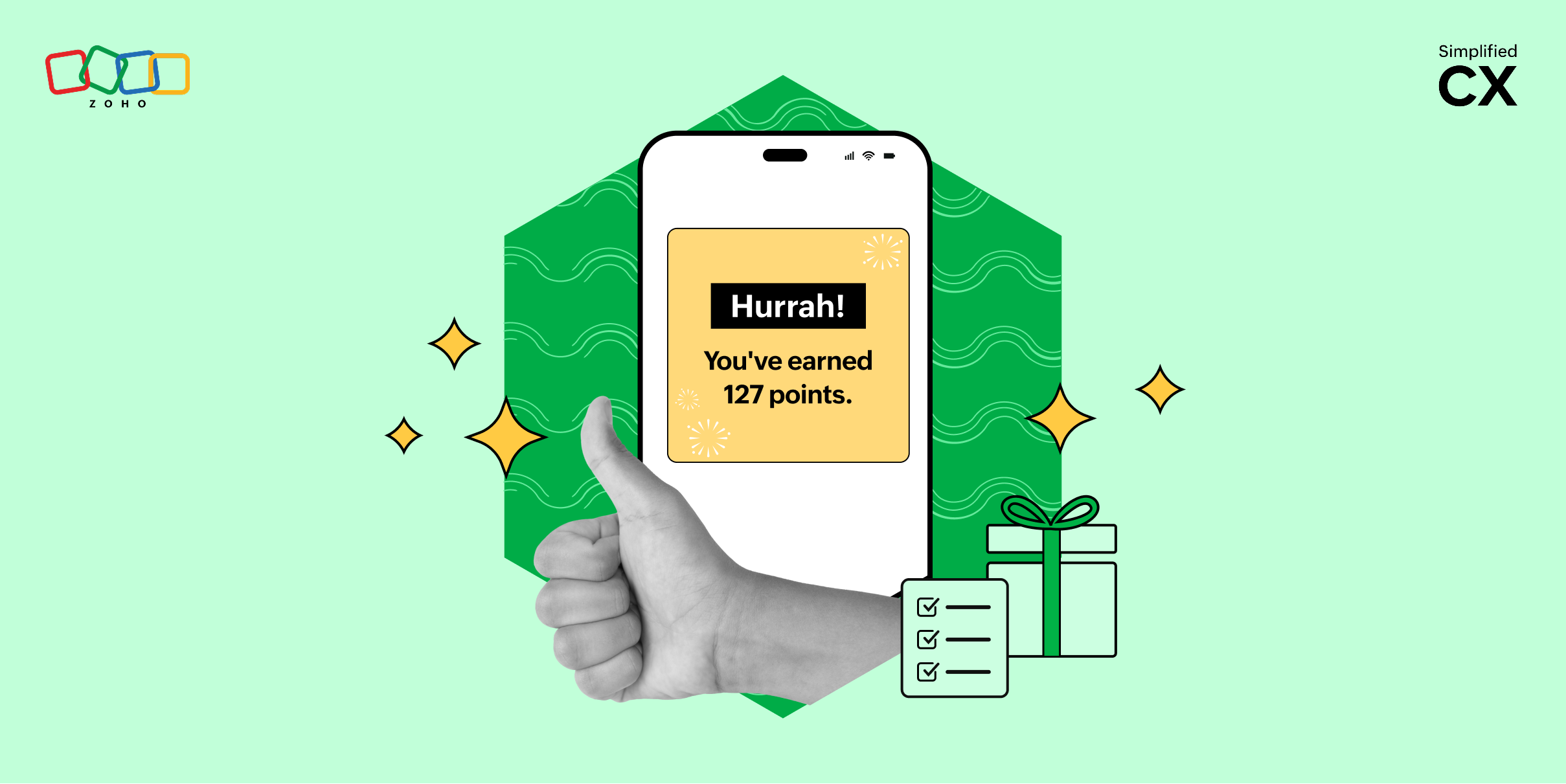Five CX lessons from unexpected sources - The Prophet by Kahlil Gibran
- Last Updated : May 28, 2024
- 174 Views
- 7 Min Read

Customer experience delivery in today's era of fast-evolving technology consists mainly of two sides: technological and human. The technological side obviously deals with the different pieces of technology used to streamline workflows and improve efficiency, while the human side is all about interacting effectively with and managing the emotions of the people involved—customers, employees, partners, resellers, and so on.
For guidance on the technological side, one can consume instructional content, such as user manuals, help articles and videos, and use case documents. For the human side? There are studies and research reports on customer behavior, psychology, emotion management, and so on. But once in a while, we can find inspiration and lessons in works of philosophy too, can't we?
I was recently rereading one of my favorite works of philosophy/poetry of all time: The Prophet, written by the renowned Lebanese-American poet Kahlil Gibran. Translated in around 110 languages, it's Gibran's magnum opus and one of the most inspiring texts ever written. In it, he provides his perspectives and advice on several important topics, such as love, marriage, work, joy and sorrow, and giving, among others. In my recent reading, I was struck by how some of his advice made great sense not just in the context he originally intended, but also in the context of customer experience.
So here I am, presenting five CX lessons that I noticed in The Prophet.
Let's go!
One of the topics that Gibran touches upon in his work is giving. In this section, he writes about what it truly means to give and what the giver's attitude must be towards the receiver and the act/gesture of giving. He writes:
You often say, "I would give, but only to the deserving."
The trees in your orchard say not so, nor the flocks in your pasture.
They give that they may live, for to withhold is to perish.
What does this mean in the context of CX?
A consistently positive experience for all customers is imperative, no matter which stage of the customer journey they're in or how much they've paid for your offering. For instance, customers flying in business class are certainly entitled to more privileges and luxuries, but that doesn't mean that those flying economy should have to bear a subpar experience. They're entitled to an equally positive experience as well. Even—or perhaps especially—prospective customers who are in the evaluation/consideration stage are also entitled to a positive experience, because it's one of the key factors that will influence their purchase decisions. To a prospective customer, a consistent positive experience provides assurance, and to a paying customer, it provides reassurance. And please keep this in mind: In today's age of experience-led growth, "to withhold is to perish."
_________
The next lesson is a bit more straightforward in meaning and context because it's found under the topic of work.
Gibran writes:
And what is it to work with love?
It is to weave the cloth with threads drawn from your heart, even as if your beloved were to wear that cloth.
It is to build a house with affection, even as if your beloved were to dwell in that house.
It is to sow seeds with tenderness and reap the harvest with joy, even as if your beloved were to eat the fruit.
The lesson here?
Put yourself in your customers' shoes and offer them the best of your work. Yes, your business and solutions exist for your customers, and maybe you won't use your own offerings extensively. Still, put in as much thought, effort, and diligence as you would if you were part of your offerings' target audience. The best way to do this is through a self-usage practice colloquially known as "dogfooding." Simply put, it's a practice that encourages the creators of a product/service to use it more widely and critically. The more closely one uses an offering, the more visibility they get into its strengths and weaknesses, which is essential for its improvement.
Therefore, as a manager/decision-maker, encourage your employees to use your own offerings, take pride in the work they deliver, and reward them justly for their excellence. This fosters a sense of ownership and accountability among your employees and drives them to keep delivering their best.
_________
Continuing in the same section dedicated to work, I found another valuable CX lesson just a couple of lines later. Here, Gibran writes:
Often have I heard you say, as if speaking in sleep, "he who works in marble, and finds the shape of his own soul in the stone, is a nobler than he who ploughs the soil.
And he who seizes the rainbow to lay it on a cloth in the likeness of man, is more than he who makes the sandals for our feet."
But I say, not in sleep but in the over-wakefulness of noontide, that the wind speaks not more sweetly to the giant oaks than to the least of all the blades of grass;
The lesson here is that CX must be a priority for all functions and roles, and not just customer-facing ones. There's no such thing as a "nobler" role in CX, and each function makes a difference. How, though? Customer-facing functions like marketing, service, pre-sales, and sales have a direct and obvious bearing on CX because they're considered the face or the primary representatives of the business. Other functions, such as billing, inventory, product, and so on, don't interact directly with customers in most cases, but any lapses or inefficiencies in their functioning or processes can lead to a domino effect that extends all the way up to the actual CX delivered. This is the main reason that tight collaboration between business functions is considered a cornerstone for achieving customer obsession. Only if each function delves deep into its role in CX delivery can businesses make full-journey CX excellence a reality.
If you need further proof, we'd like to present here one of the benchmarks/requirements that analyst firm Forrester has for its Customer-Obsessed Enterprise Award: Deep collaboration across the business—especially among marketing, customer experience, and digital teams, but also with other functions (such as tech or HR) and partners—to ensure customer obsession.
That's just how important cross-functional collaboration is for delivering exceptional CX.
_________
The next CX lesson I found in the book relates to employees, and I found it in the section on children. A single line with profound wisdom. Gibran goes:
And though they are with you, yet they belong not to you.
You may be wondering how this bit of advice for parents can be relevant to CX. The lesson here is that though it's important that your employees take pride in their work, it shouldn't happen at the cost of their work-life balance or mental health. The fact that they work for your organization can very well be part of their identity, but it shouldn't be the only thing they're known for. Therefore, put the necessary checks and balances in place in your operations to ensure your employees aren't overworked or subjected to burnout. Practices like working extra hours or during weekends are fine if they happen occasionally, but they shouldn't be the norm. Employee experience impacts customer experience, and the sooner business decision-makers realize this, the better their overall CX outcomes will be.
_________
Now to the fifth and final CX lesson I spotted in The Prophet, and it's one of Gibran's most iconic lines. Even if you haven't read the book, there's a high chance that you might have come across this particular line.
Love possesses not nor would it be possessed;
Again, just like in the previous case, what does this piece of advice for personal relationships have to do with CX? In the context of CX, this means that you shouldn't try to force customer relationships through practices like vendor lock-ins or obscure fine print in contracts. Yes, as a business, you want to capture the market as widely as possible and retain your customers as long as possible. However, if your customers, for whatever reason, choose to switch to a competitor, you shouldn't make it challenging for them to make the move. You're certainly welcome to try to convince them to stay back, but trying too hard if they're firm in their decision could backfire badly and burn the bridge between you.
A customer exiting their relationship with you is also very much a part of their customer journey. So it's vital that you make the experience smooth for them even at that stage. This makes it clear to them that you'll always have their best interests in mind. You might lose their revenue, but you gain more of their respect—an asset that could help you in the future. Furthermore, learning everything about why a customer made such a decision can be of great help when you go back to the drawing board and analyze what you can do better. In a nutshell, deliver a consistently positive experience throughout the journey and be remembered for the right reasons.
I hope you enjoyed reading this article as much as I enjoyed writing it! Feel free to share any other CX lessons that you learned from unexpected sources.


